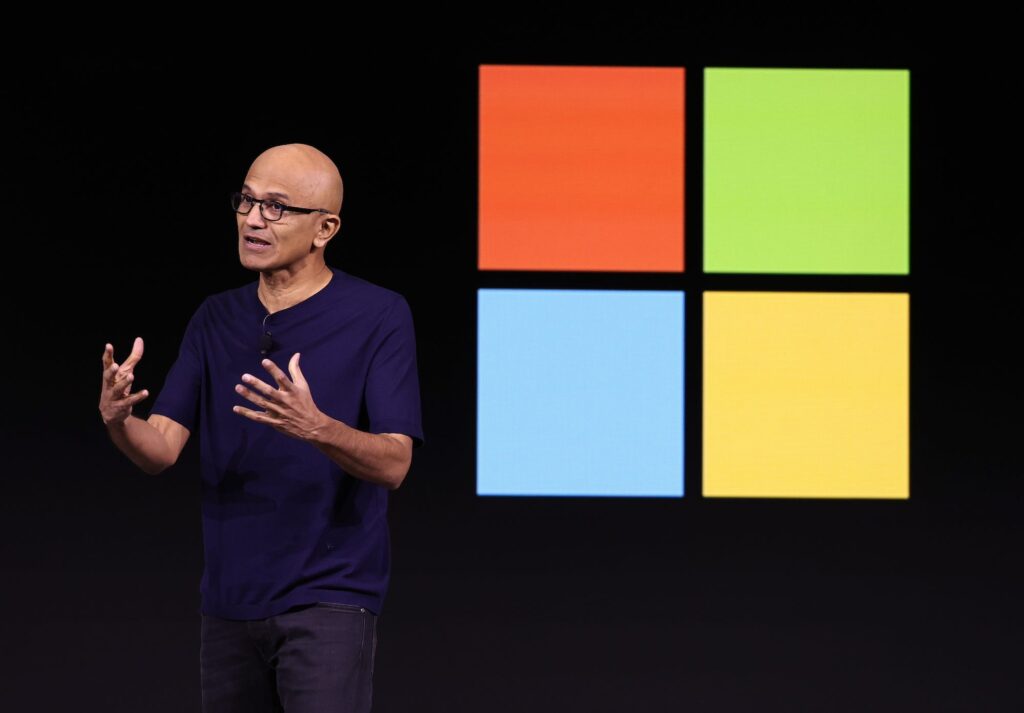- Microsoft plans to boost spending on AI and cloud services as demand rises.
- The company made $26.7 billion in revenue this quarter from cloud products, including Azure.
- Microsoft's spending commitment follows leaked plans to acquire 1.8 million AI chips in 2024.
Microsoft won't slow down its artificial intelligence spending spree anytime soon.
In its third-quarter earnings call on Thursday, the tech giant said it will continue to invest in AI and cloud services because of growing demand and a rise in average spending on its cloud platform, Azure.
Capital expenditure — what a company spends on buying or maintaining assets — will increase "materially," Amy Hood, Microsoft's chief financial officer, said on the call.
"Currently, near-term AI demand is a bit higher than our available capacity," Hood said.
The company spent nearly $11 billion on property and equipment in the third quarter — 66% more than it spent in the same period a year ago.
Microsoft booked $26.7 billion in revenue in the third quarter from its cloud products, including Azure, according to the earnings statement.
AI assistant Copilot grew its paid subscribers by 35% this quarter, to 1.8 million, CEO Satya Nadella said on the call.
Microsoft's better-than-expected earnings sent stock up 4% in after-hours trading. Both revenue and earnings per share beat Wall Street estimates.
The company's plans to spend more come on the heels of other big commitments to developing AI. Last week, BI reported on leaked documents showing the company plans to obtain 1.8 million AI chips by the end of 2024 and ramp up its data center capacity.
The explosive interest in generative AI and foundation models is fueling a need for more data centers, including from Microsoft partner OpenAI, the startup behind ChatGPT and GPT-4.
AI models need to be trained on mountains of data, which requires thousands of graphics processing units produced by companies like Nvidia. Microsoft is designing its own chips to reduce its reliance on Nvidia.










